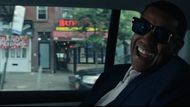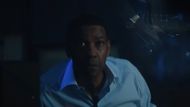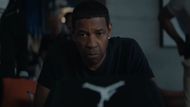Spike Lee's Highest 2 Lowest brings back a refined version of Akiro Kurosawa's High and Low, but this time, based on the subway tracks of modern New York. At the center we have David King, played with brilliance by Denzel Washington who reunites with Spike Lee for another worthwhile, thrilling watch.
King is a music mogul who has built an empire for himself with his sonic excellence. But tragedy strikes when his driver's son gets kidnapped and the story twists into a moral riddle with no easy answers.
The ending of Highest 2 Lowest does more than just solve the crime mystery. It sums up King's character to a fitting end and raises questions about morality and integrity. Here's what happens in the ending of Highest 2 Lowest, and where we find Washington in the end.
What is Highest 2 Lowest about?

Highest 2 Lowest follows David King, who has built a legacy empire out of sound. The founder of Stackin' Hit Records, he has garnered a reputation for being someone who catches on to young talent quickly. But an empire comes with a price, and you have to protect it with everything you have. Having once sold off control of his company, King sets out to buy it back, putting nearly everything he owns, his sleek Dumbo penthouse, his fortune, even a priceless collection of contemporary Black art, on the line to close the deal.
Before he has time to make his plan go through, he gets a phone call from a kidnapper who has kidnapped his son Trey and is asking for $17.5 million in Swiss banknotes. Panicked but resolute, King and his wife Pam agree to the ransom but before they can go through with anything they are hit with a shocking revelation: Trey is safe and sound. But the one in danger is Kyle, Trey's best friend and King's driver Paul's son.

Now the tables are twisted. Sure, King didn't think twice about giving off a chunk of his wealth in exchange for his son. But for somebody else's safety, he hesitates. As pressure closes in, he's torn between his humanity and the chance to get his life back, and he ultimately decides to save Kyle and arranges for the money and follows the kidnapper's instructions.
What follows is a choreographed nightmare. The bag slips between train cars, passes through mazes and parades, and eventually gets handed to the police. Although they catch the bagman, the money has already been removed. Kyle is free, but the mystery behind the kidnapper remains.
King becomes a hero. But on the inside, his financial empire is crumbling. His lenders demand his money back, and Kyle has no hint about who the kidnapper was. All he remembers is listening to a distinct rap song, and as King gets deeper into the details, he realizes the kidnapper is an artist called Yung Felon, who's demo has been lying in his studio the whole time.
Why did Yung Felon kidnap Kyle?

After having the police reject their leads, Paul and King start chasing the trail themselves. They hunt Felon down and it leads to an ordinary home and a family. Meeting his wife and son, they don't reveal the intentions behind their chasing. His wife assumes that King is there to give Felon a chance at music, and leads him straight to him. She opens up on how Felon is an ex convict who used to worship King like a father figure as he tries to leave his con life behind through music.
What follows is less a conversation than a collision. Felon unloads his resentment in an improvised rap, framing the kidnapping not as a crime but as a cry for recognition. To him, King is the father who abandoned him, the gatekeeper who never opened the door.
The confrontation dissolves into violence. Shots ring out, Paul is left scarred, his eye permanently damaged, and Felon flees onto an elevated train. King chases him, finally cornering him between cars, the sound of steel tracks roaring beneath them, and knocks him out cold.

The aftermath leaves no winners. Paul chooses to walk away, urging his son to carve out a new path free of King’s shadow. Felon becomes an unlikely global sensation even as he accepts a 25-year prison term. In their final meeting, he pleads with King to sign him, to turn betrayal into profit. King refuses, revealing he has abandoned Stackin’ Hits for a smaller, truer label.
Back home, redemption takes form in Sula, a young singer Trey discovered. Her song, Highest 2 Lowest, fills the room, promising a fresh start, for the family, and for the music.
How the ending of Highest 2 Lowest sums up David King's character

When Highest 2 Lowest starts, we meet a man who is all about his empire, his business and profits. The film uncovers deeper parts of the music industry and the desperation of moguls for hits. For King, music is just a key to more wealth as he chases down artists who will make it big. There's not much integrity in how he does his business. Even as Kyle's life was in danger, he thinks twice before saving him.
However, the ending with Felon changes that. Yung Felon serves as the mirror he doesn’t want to face: the neglected artist, the casualty of a system that prizes profit over people. Their confrontation forces King to see how his own choices have created shadows of resentment in others.
So when the credits roll, King is no longer perched at the glittering top of the industry, but he isn’t at the bottom either. He is somewhere real, somewhere human. The title Highest 2 Lowest captures his downfall in business terms, but spiritually, it suggests the opposite. King might have dropped from the highest to the lowest, but the ending signifies how he finds something far more valuable in the fall.
Highest 2 Lowest is now streaming on Apple TV.
Love movies? Try our Box Office Game and Movie Grid Game to test your film knowledge and have some fun!
